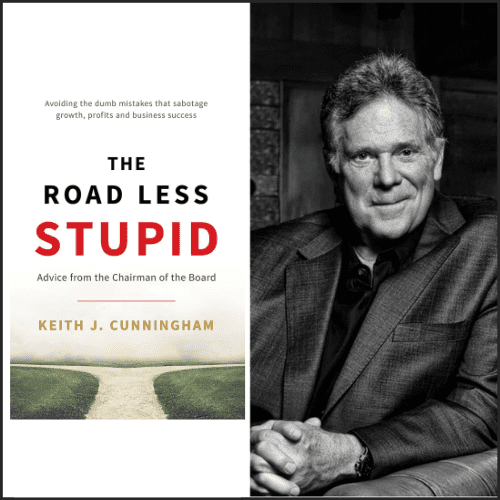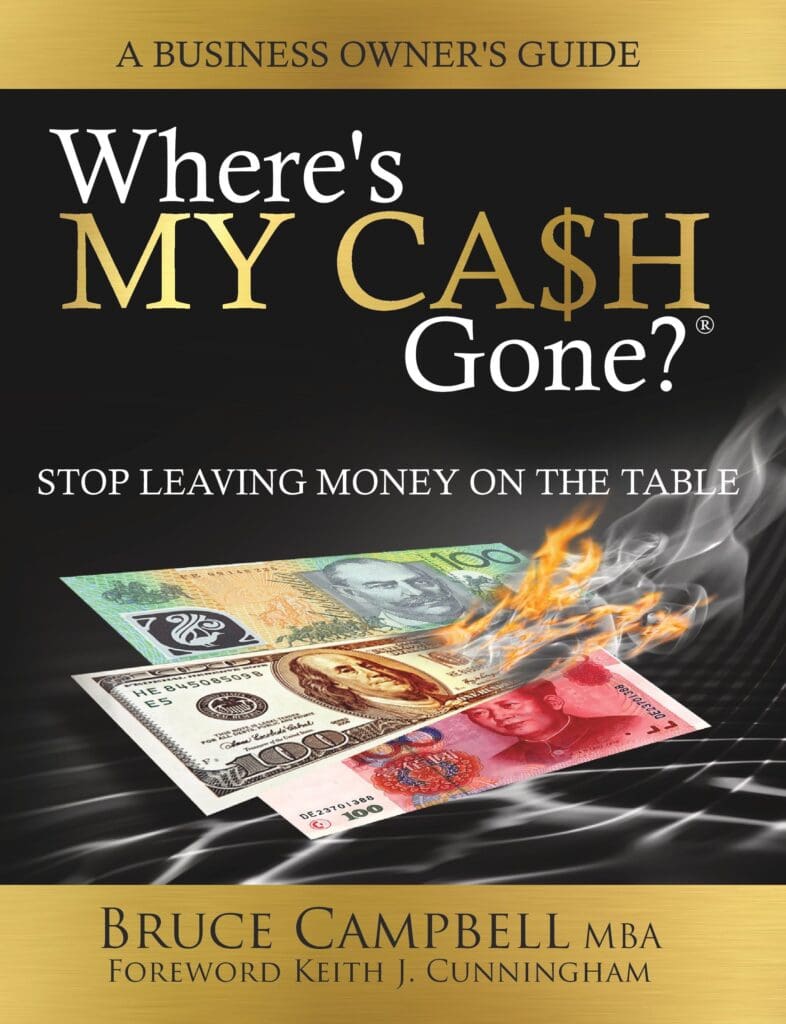The Road Less Stupid: Smart Thinking for Business Success
Keith Cunningham’s The Road Less Stupid cuts through the noise with a refreshingly practical take on business decision-making. His core message? Success isn’t about being the smartest person in the room—it’s about avoiding unnecessary mistakes. Let’s break down the key lessons and how to actually put them into practice!
The Game-Changing Takeaways
1. Make “Thinking Time” Your Secret Weapon
Cunningham champions dedicated, distraction-free thinking sessions. In our notification-obsessed world, this practice is revolutionary! Most business owners are trapped in reactive mode, putting out fires rather than preventing them.
The Deep Dive: This concept is truly a game-changer for any business owner feeling overwhelmed by day-to-day operations. Thinking time isn’t just another meeting with yourself—it’s a fundamental shift in how you approach your business. When you dedicate uninterrupted time to deep reflection, you’re essentially stepping out of the whirlwind to see patterns and opportunities that remain invisible when you’re caught in the daily grind.
The magic happens when you disconnect completely—no phone, no computer, just you and your thoughts.
“Many successful entrepreneurs report that their most profitable ideas didn’t come during frantic work sessions but during these moments of deliberate contemplation.”
It’s like creating a mental laboratory where you can experiment with ideas before committing resources to them.
How to implement this TODAY:
- Block 30-60 minutes in your calendar twice weekly labeled “Thinking Time”
- Turn off ALL devices (yes, even your smartwatch!)
- Bring only a notebook and pen
- Start with one pressing business question
- Don’t judge your thoughts—just explore them
Some people find morning thinking sessions most effective, before the day’s demands hijack your mental clarity. The difference in decision quality is remarkable!
2. Level Up Your Question Game
The book brilliantly shows how better questions lead to better decisions. Most business owners ask surface-level questions that lead to band-aid solutions.
The Deep Dive: Questioning is an art form that separates good business owners from great ones. When you develop the habit of asking penetrating questions, you’re essentially developing x-ray vision for your business. Surface questions produce surface answers, but deep questions reveal the structural issues that might be holding you back.
“Consider this: most struggling businesses aren’t failing because the owners aren’t working hard enough—they’re failing because energy is being misdirected at symptoms rather than causes.”
By upgrading your questioning skills, you direct your resources with laser precision instead of scattering them across multiple ineffective “solutions.”
The real power comes when questioning becomes your default response to problems rather than knee-jerk reactions. This mental discipline creates a buffer between stimulus and response that can save you countless dollars and hours of wasted effort.
Implementation strategy:
- Create a “question journal” where you log key business problems
- For each problem, write down your initial question
- Then ask “What’s the deeper issue here?” at least three times
- Look for patterns in your thinking—are you consistently missing certain angles?
- Review past decisions and ask: “What question SHOULD I have asked?”
This simple practice helps you dig beneath symptoms to address root causes!
3. Turn Mistakes into Goldmines
Rather than avoiding failure, Cunningham encourages using mistakes as learning opportunities. This mindset shift is huge!
The Deep Dive: This principle challenges the perfectionist tendencies many entrepreneurs struggle with. The reality? Mistakes aren’t just inevitable—they’re valuable! When properly processed, each mistake becomes intellectual capital that compounds over time. The most successful business owners aren’t necessarily those who make fewer mistakes, but those who extract maximum learning from each one.
What makes this approach powerful is how it transforms the emotional landscape of entrepreneurship. Rather than dreading failure, you begin seeing it as data—valuable information that helps refine your business model and decision-making process. This emotional resilience becomes a competitive advantage in markets where others might give up after setbacks.
The key distinction Cunningham makes is between making a mistake and repeating one. The first is education—the second is negligence. By creating systems to capture and apply these lessons, you essentially transform every dollar spent on mistakes into an investment rather than an expense.
Make this actionable by:
- Creating a “lessons learned” document after each project or quarter
- Holding monthly “mistake reviews” with your team (lead by example!)
- Asking “What would I do differently next time?” rather than “Who’s to blame?”
- Developing systems to prevent repeat errors
- Celebrating when team members share failures openly
Remember: You’re going to pay for your education one way or another—better through reflection than repetition!
4. Befriend Your Numbers (Even If You Hate Math)
Financial literacy isn’t optional—it’s survival. But Cunningham makes this accessible even for the math-phobic among us.
The Deep Dive: Financial awareness acts as the nervous system of your business—it tells you when something is wrong before the pain becomes unbearable. The problem? Many entrepreneurs delegate financial understanding entirely, creating dangerous blind spots in their decision-making.
What makes Cunningham’s approach refreshing is how he demystifies financial literacy.
“You don’t need to become an accountant—you just need to understand which numbers actually matter for your specific business model.”
When you develop this clarity, financial reports transform from intimidating spreadsheets into strategic intelligence.
The real breakthrough happens when you start connecting operational decisions to financial outcomes. That marketing initiative? That hiring decision? That new product line? Each creates ripples through your financial statements. When you can trace these connections, you gain a predictive power that feels almost like business clairvoyance.
Implementation blueprint:
- Identify 3-5 key metrics that truly drive your business
- Create a simple dashboard to track them weekly
- Schedule regular “financial clarity” sessions with your accountant
- Ask them to explain concepts you don’t understand (no shame!)
- Connect financial outcomes to operational decisions
- Make reviewing numbers a habit, not an event
When you understand your numbers, you make decisions based on reality, not wishful thinking!
The Bottom Line
The Road Less Stupid isn’t about flashy strategies—it’s about developing the mental discipline to make better decisions consistently. It’s the difference between the entrepreneur who’s constantly firefighting and the one who builds a sustainable, profitable business.
The beauty of Cunningham’s approach is its simplicity. You don’t need fancy tools or an MBA—just the willingness to slow down, think deeply, and challenge your assumptions.
Try implementing just ONE of these principles this week. Even small shifts in your decision-making process can yield massive results over time!
What business decision could benefit from some dedicated thinking time right now? Your future self will thank you for starting today!


